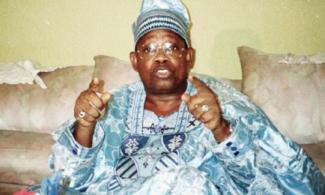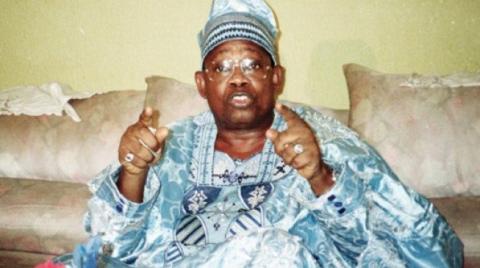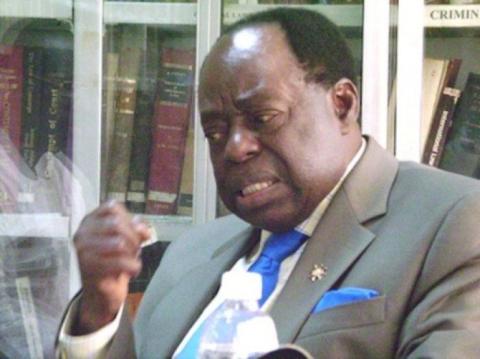
Continuing the series of SaharaReporters' June 12 Special, this article takes a cursory look at the regions that never celebrated the June 12 struggle and why.

June 12 is symbolic in Nigeria’s history, not because it was recently christened Democracy Day. It is because represents the strength of determined Nigerians and the weakness of the Nigerian system. The imbroglio that ensued after June 12, 1993, presidential elections divided Nigerians into two blocs: the 'powerful' with the military might and the 'weak' with the doggedness of their heart. The wager was the judiciary, the eminent systemic organ that tended to the strength of the powerful and crushed the collective resolve of the people.
There were several lawsuits that pitched influential figures against one another, or as it frequently was, the powerful against the weak. The courtrooms were the battlefield, the lawyers came with their weaponry and the judge up in his chairs handed victory to those with the strongest weaponry. Many of the time, the victors were those who could manipulate the wig better.
The history of June 12 is rarely told through this lens. There is hardly a mention of the roles the judiciary played during and after the annulment of the June 12, 1993, presidential election. In this installment of June 12 Special, SaharaReporters takes a look at how the ministers in the temple of justice made the temple complicit in the annulment of June 12 presidential election.
Afe Babalola vs Philip Umeadi

The Senior Advocate of Nigeria had fought legal battles for MKO Abiola even before 1993. He was the lawyer who thwarted late Oba Okunade Sijuade, Ooni of Ife’s attempt to hinder the enthronement of MKO Abiola as the Are Ona Kakanfo of the Yoruba land.
Ooni of Ife had approached the Oyo High Court to challenge the powers of Oba Lamidi Olayiwola Adeyemi III, the Alaafin Oyo, in installing a Kakanfo. The Alaafin got a whiff of this action and instruct his lawyer, Afe Babalola, to nip it in the bud. Babalola, who was then a young but astute lawyer, swung to action and ensure Ooni’s ex-parte motion did now see the light of the day. The case was sentimental but it was a battle between two equals: two first-class kings.
But the power dynamic changed when Babalola represented Abiola against the ruling Justice Bassey Ikpeme, cancelling the scheduled 1993 election.
Two days to the election, Justice Ikpeme of the Federal High Court, Abuja, delivered ruling to the effect that the election could no longer continue. This was the weapon used by Ibrahim Babangida, a former military head of state, to annul the election.
On the day the appeal came up in Kaduna, Babalola, led 30 other lawyers, with the convictions that he would once again coast to victory as he had done with the Kakanfo saga. However, this time, he was contending with the military might embodied in the person of Philip Umeadi (SAN).
Umeadi taunted Babalola and his team of lawyers knowing that he has his joker well-tucked in his pocket. Umeadi told the court there was no suit before the court as the election had been annulled.
Babalola disputed this, arguing that only a government `gazette can prove that indeed the election had been annulled. Umeadi then asked for a brief adjournment. Minutes later he put before the court a gazette.
“It is important to note that up to this point in time, there was no Gazette. I instantly became disturbed when I saw the Gazette because I was alarmed that a Gazette could be procured in a matter of minutes. I had no choice than to admit to the fact that there was no lis before the court. In my reply, with tears in my eyes, I said, rather courageously that “this is the saddest day for the judiciary in this country and the beginning of a journey the end of which no one knows,” Babalola recalled
Twenty-three years later, when Babalola retold the incident that happened at the Court of Appeal in Kaduna, he concluded that Nigeria is yet to recover from the dastardly stunt pulled by Umeadi and his employer, the federal government.
Clement Akpamgbo
Clement Akpamgbo was the Attorney-General and Minister of Justice, during the 1993 presidential election.
According to the interviews published in Ibrahim Babangida: The Military, Politics and Power in Nigeria”, a book written by Dan Agbese, founding members of Newswatch magazine, Akpamgbo was in support of the kangaroo judgment of Justice Ikpeme, annulling the 1993 election.
According to the book, even the chairman of National Electoral Commission, Prof. Humphrey Nwosu, had seen the conduct of the presidential election as critical to the entire transition programme and was on ground to see that it ended on a sound note.
But the storm was gathering, some people in the military were intimidated by MKO Abiola's clout and did everything to stop the election. When the court ruled in favour of the cancellation two days to the election, the NEC chairman tried to salvage it.
“Nwosu tried to salvage it. He appeared before the NDSC on June 11 and put a strong argument in favour of going ahead with the election. He argued, quite passionately, that if the election was postponed, the election materials already on site would be compromised,” IBB was quoted to have said in the book.
“NEC had enough protection under the decree to ignore Ikpeme’s ruling. But the Attorney General and Minister of Justice, Clement Akpamgbo, had a different take on the issue. He did not support Nwosu’s position. Instead, he advised that the election be postponed in obedience to the order, NEC could then appeal and have the order set aside by a superior court.”
The election went on but the bedrock for its failure had been laid by the expert manipulations of the judicial system. Maybe, the actions of these few powerful men, who connived to upturn the decision of millions of Nigerians on June 12, would have amounted to naught had there not been lawyers and judges who gave themselves up as instruments of operation.
Indeed, according to Omoyele Sowore, the founder of SaharaReporters and an active participant in the June 12 struggle, the monumental conspiracy perpetrated by many influential personalities include judges, during the June 12 struggle “was the greatest gang up against a people aspiring for true democracy”.